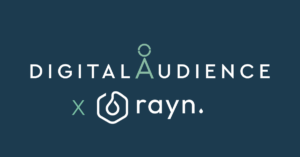Cavai's Ed Preedy on FLoC, Anime's Path to the World Stage, and Birdwatch
by Grace Dillon on 29th Jan 2021 in Podcast
On this week’s episode of the MadTech Podcast, Ed Preedy, global CRO at Cavai, joins ExchangeWire’s Rachel Smith and Lindsay Rowntree to discuss the latest news in ad tech and martech.
In this episode:
- Google has effectively opted to replace cookies with Federated Learning of Cohorts (FLoC) within Chrome. A form of API that facilitates targeted advertising based on the general interest of users, Google claims that FLoC is almost 95% as effective as the third-party cookie when it comes to the ratio of conversions to spend.
Part of the search leader’s ‘privacy sandbox’, the solution uses a machine learning algorithm to place internet users into groups (or ‘cohorts’) based on the websites they visit, effectively building audiences for targeted advertising. The Alphabet Inc. subsidiary is reportedly planning to test the new tool more widely from March.
Whilst significant, the solution will only serve as a partial replacement of the third-party cookie, as it does not have measurement, retargeting, and fraud prevention capabilities. Google asserts that FLoC offers relative privacy by omitting PII. However, there are still concerns that the algorithm could group users based on sensitive information, including race or sexuality, although Google has said that it has taken steps to avoid this from happening.
- Anime has emerged as Sony’s “secret weapon” after the success of the Demon Slayer franchise. The popularity of the TV and film adaptation of the Japanese manga has set the stage for Japan to take its unique style of animation global, writes the FT’s Leo Lewis and Kana Inagaki. As such, the industry has become the battleground for streaming services as they strive to maintain the growth sparked by the pandemic.
The anime industry, which has had a somewhat niche audience in the West for almost two decades, is currently worth USD $24bn (£17.5bn), and produces more than 107,000 minutes of content per year. Whilst past Japanese exports such as Power Rangers and Pokemon have failed to bring the wider anime industry to the mainstream, experts say that changes to the structure, ambitions, and ownership of the industry make fertile ground for anime to go global.
The multiple revenue streams within anime’s monetisation model (such as games, music, merchandise, etc.) has begun to influence the likes of Disney and Netflix according to some analysts. US media firms have made their interest in the industry clear through a number of deals, including Sony’s USD $1.2bn (£873.2m) purchase of AT&T’s anime studio Crunchyroll last month. Goldman Sachs analyst Minima Munakata forecasts that, in the best case scenario, the Demon Slayer IP could contribute USD $1.1bn (£800.6m) to Sony anime division Aniplex’s annual operating profits.
- Twitter has announced the launch of Birdwatch, a community-driven fact-checking system. Birdwatch, which will be managed by a group of contributors, is the latest initiative launched by the social media platform in the hope of curbing the spread of misinformation. It follows the introduction of labels that warn users when a tweet features unverified information, as well as a pop up to dissuade users from retweeting articles that they have not read.
The announcement comes on the heels of a tumultuous year which saw digital platforms come under more intense criticism than ever before for failing to clamp down on harmful and inflammatory content. Twitter came under considerable fire for not curbing former US president Donald Trump, who used the platform to perpetuate a number of dangerous falsehoods, including that the US election was rigged against him in a lie that saw his supporters break into the Capitol Hill building earlier this month. Trump’s account was terminated in the aftermath of the insurrection.
Birdwatch will seek to stop the spread of disinformation by adding context to tweets and stories, giving users a more complete and balanced view. This context will be hosted on a dedicated ‘Birdwatch page’ for now so that the company can make sure that the initiative works. The aim, however, is for the feature to run within Twitter’s feed. All information posted to Birdwatch will be available to download, meaning that it can be audited by experts.
CookiesDataGoogleIdentityStreamingTwitter / X








Follow ExchangeWire